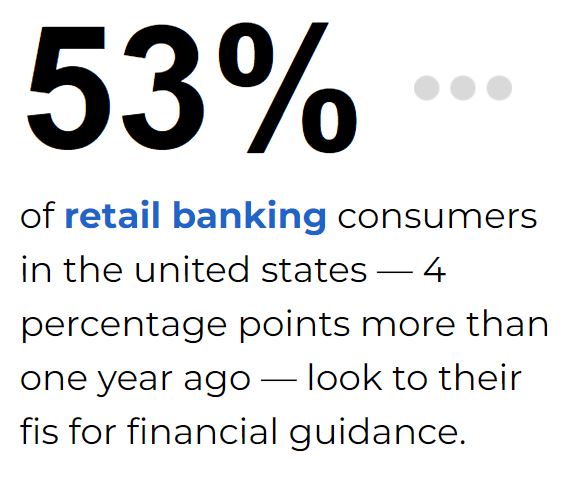Social media algorithms have emerged as influential players in the advice space, effectively acting as pseudo-advisors for generations eager for financial literacy.
A PYMNTS Intelligence report, “The New Challenges Facing Finance: Algorithms, Finfluencers and the Quest for Reliability,” a collaboration with NCR Voyix, illustrates how digital transformation presents opportunities and challenges for both consumers and traditional financial institutions (FIs ).
Social Media as a Catalyst for Financial Education
The rise of social media has fundamentally changed the way individuals seek financial advice, with algorithms directing 79% of millennial and Gen Z consumers to clean narratives of financial education. Platforms like TikTok have become central to this change, capturing the attention of 62% of Gen Z, who now see it as a valuable resource for financial knowledge. These platforms are not just social spaces, but have evolved into financial education hubs, where engaging content makes complex concepts more accessible.

The appeal of “finfluencers” — digital personalities who offer financial insights — carries a significant caveat. Although they promise transformative financial strategies, 34% of Gen Z report being influenced by their content. Critics warn that this influence can lead to the propagation of myths and financial scams. This dynamic raises critical questions about the credibility and reliability of financial guides available online.
The need for regulatory oversight in financial advice
As the online financial landscape expands, the demands for regulatory oversight are growing stronger. The proliferation of fininfluencers, which range from credible advisers to those with dubious motives, has prompted scrutiny from regulatory bodies. The UK’s Financial Conduct Authority (FCA) is actively targeting these influencers, focusing on misleading promotions and misleading financial advice to protect consumers from potential harm.
The dark side of finfluencer fame cannot be ignored. Some individuals capitalize on manipulated success stories to lure followers into dubious financial schemes, often leading to dire consequences. The financial consequences of such actions can be devastating, leaving victims with significant debt or worse. The need for regulation underlines the risks associated with unverified online financial advice and the imperative for consumer protection.
The shift to personalized financial experiences
In response to the changing landscape, traditional financial institutions are reimagining their roles. A growing 53% of US retail banking consumers now turn to their banks for financial guidance, a notable increase over previous years. This shift reflects a broader trend in which banks are using partnerships with FinTech companies to provide personalized financial experiences, moving away from one-size-fits-all solutions.
Banks are now focusing on innovation in customer engagement. For example, initiatives such as Astra, a provider of infrastructure for faster payments, and Till Financial, a company focused on collaborative family banking, are cultivating financial literacy among younger consumers by equipping families with essential management skills. This commitment to education and personalized service is crucial as traditional banks aim to regain relevance and trust in an increasingly social media-influenced market.
Financial institutions must focus on transparency and accuracy in their communications to distinguish themselves from unreliable online advice. By combating misinformation and promoting financial literacy, they can adapt to the changing landscape influenced by social media and regulatory needs.

#millennials #Gen #turn #social #media #financial #advice #PYMNTS.com